CCG launches three English books on globalization of Chinese enterprises and talent
June 05 , 2019
The Center for China and Globalization launched three English books at the headquarters office in Beijing on July 7, as its latest achievement in academic study on the globalization of Chinese enterprises and talent.
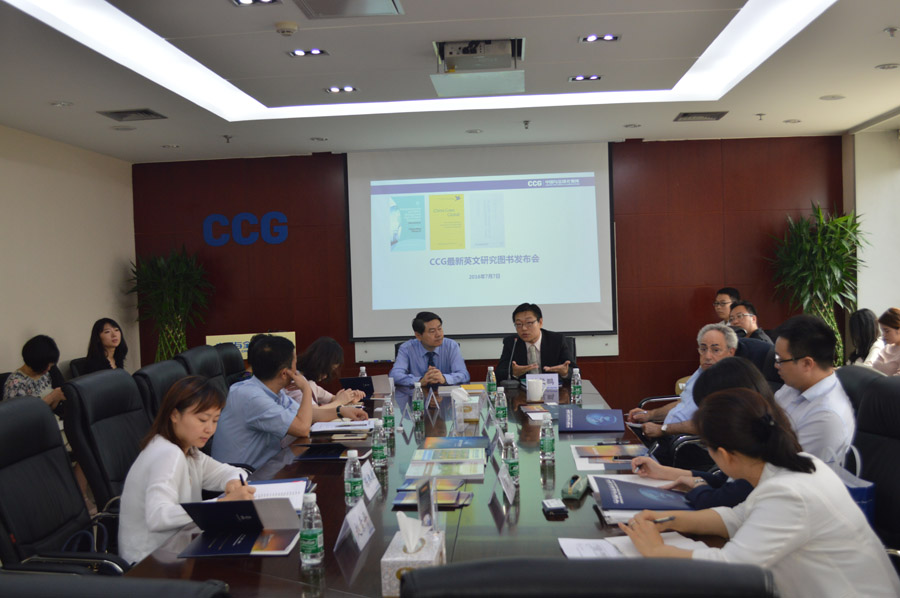
The three books are “China Goes Global: How China’s Overseas Investment is Transforming its Business Enterprises” (中国走向全球:中国的海外投资如何推动企业的转型), “Entrepreneurship and Talent Management from a Global Perspective:Global Returnees” (全球化视野下的创业学和人才管理:全球海归), and “Reverse Migration in Contemporary China:Returnees, Entrepreneurship and the Chinese Economy” (当代中国回流移民:海归、企业家和中国经济).
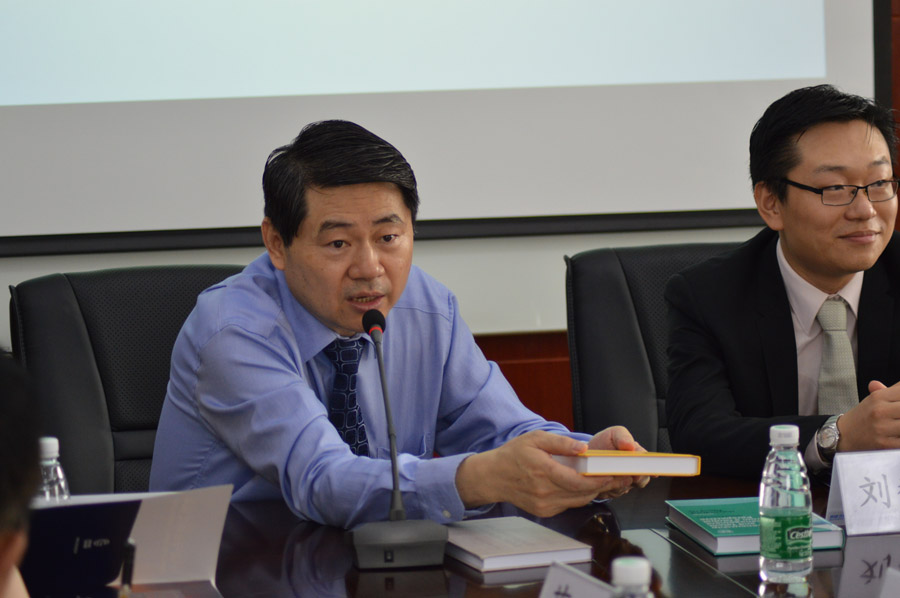
CCG President Wang Huiyao presented the three books at the releasing ceremony and said they are among the earliest English publications that introduce to international community the issues of overseas Chinese returnees, Chinese companies going global, talent and innovation, and “One Belt, One Road.” The books were mostly drafted by CCG scholars in English including himself and can be valuable reference for foreigners to understand China.
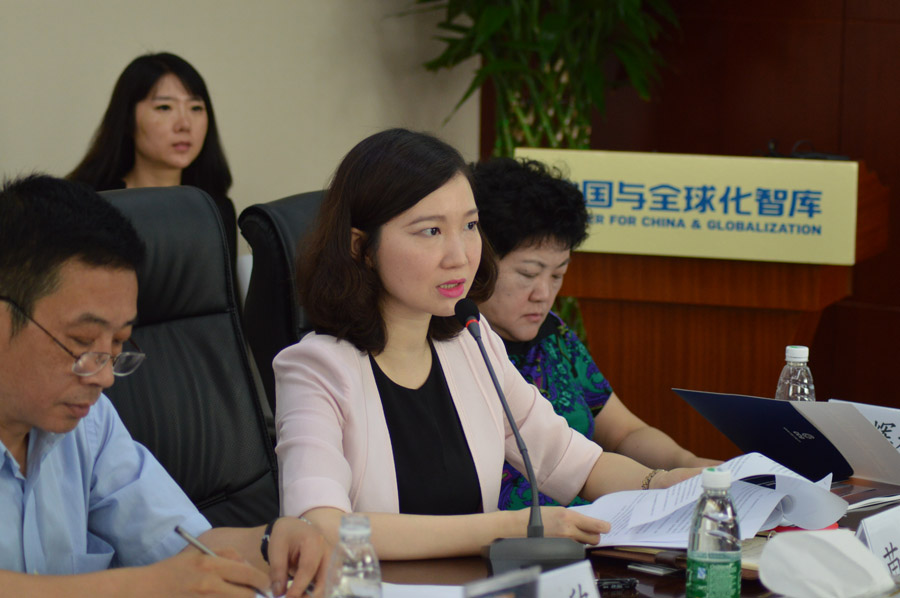
CCG Secretary General Mabel Miao Lu CCG, another key author and editor of the books, reiterated CCG’s founding principle to use the power of academic research to improve policymaking and use internationalized language to tell the world China’s stories. The three books include all the key findings of CCG’s research on the globalization of Chinese companies and talent and hopefully can lead to further debate and discussion about those issues.
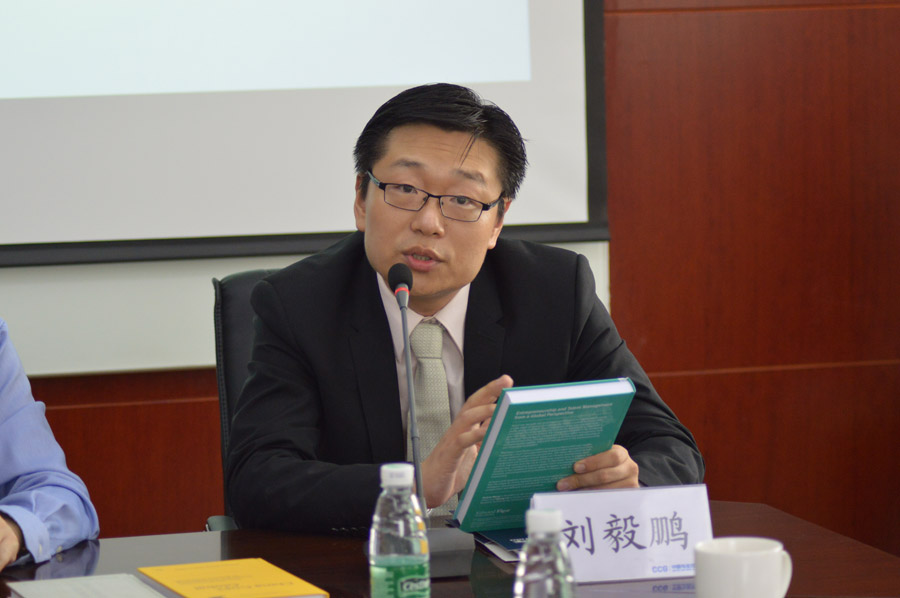
Liu Yipeng, Associate Professor in Entrepreneurship at Birmingham Business School, University of Birmingham and CCG research fellow, who compiled the book “Entrepreneurship and Talent Management from a Global Perspective:Global Returnees”, shared its highlights at the ceremony. He said the book is divided into two parts, with the first one focused on China’s experience and the second on the comparison with international practice. This way, this book can provide valuable reference as China strives to promote mass innovation and entrepreneurship as well as supply-side reforms. Liu also hopes that the book can inspire more scholars, experts and policymakers to join the effort boosting innovation and promoting mobility of high-level talent.
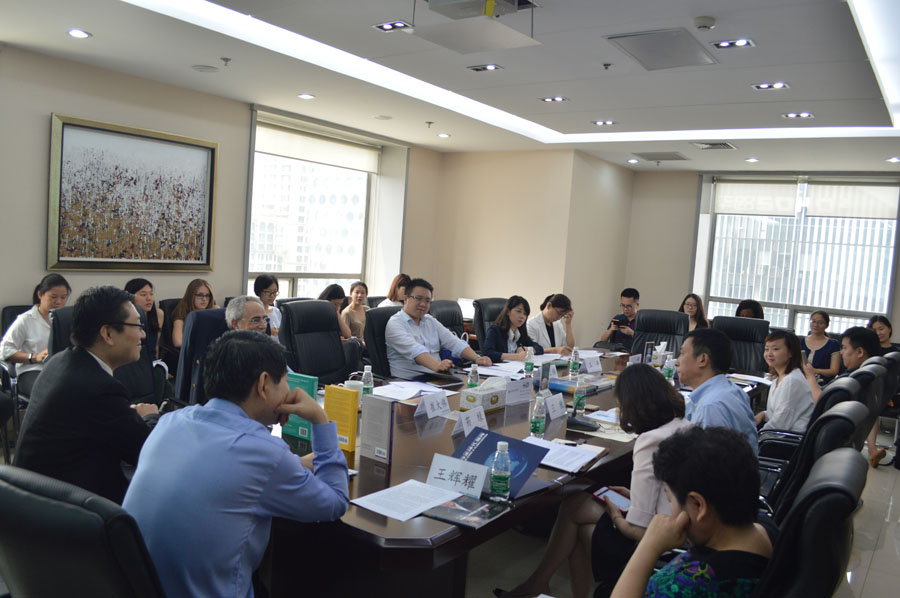
The three English publications are highly rated and recommended by many renowned scholars from China and the world. Long Yongtu, former Vice-Minister of Commerce and former Secretary General of the Boao Forum, spoke highly of the book “China Goes Global” that provides an insightful review of world economic development and abundant data about Chinese companies going global. It is not only a contribution to theoretical study but also a practical tool for Chinese companies to solve their problems in reality. Cao Dewang, Founder and Chairman of Fuyao Automotive Glass, applauds this well-researched book, in which the authors, Wang Huiyao and Miao Lu, examine the background of the globalization of China, including alternative models used by Chinese entrepreneurs and businesses, and develop a much needed ranking system for globalized Chinese enterprises.
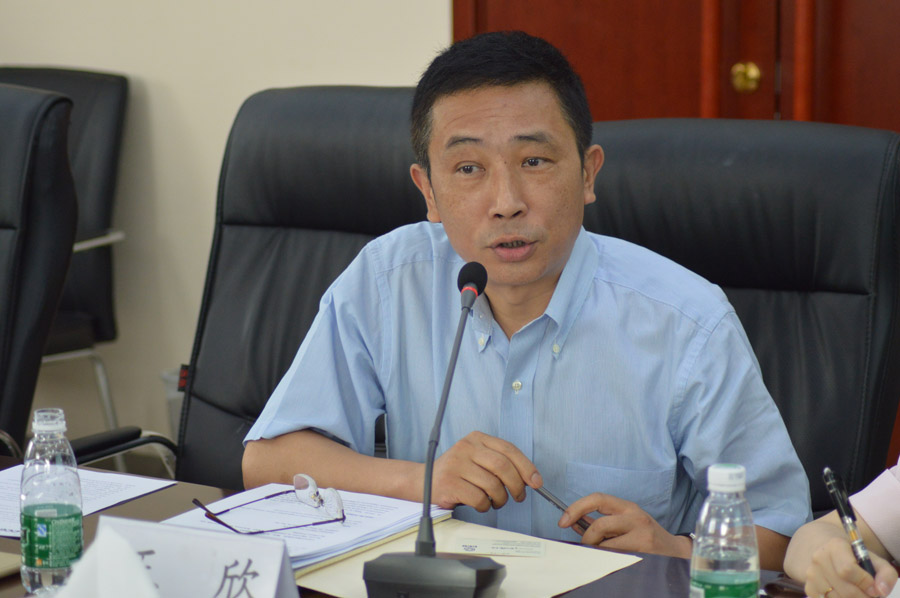
Wang Xin, former president of Sinomedia, a leading Chinese American media group, recommended the three books for focusing on the most prominent issues in China now and having so much insightful and instructive content.
The publications, once again, prove that think tanks are playing an increasingly important role in domestic and global governance as well as international exchange. According to the “Opinions on Strengthening the Construction of a New Type of Think Tank with Chinese Characteristics” jointly issued by the State Council and the Central Committee of the CPC, more attention should be given to the translation and publication of think tank research outcomes. Recently, President Xi also emphasized the need to promote exchange between the think tanks in China and other countries and support the effort to share Chinese think tanks’ research outcomes with international community.
As an independent think tank with international influence, CCG attaches great importance to original academic research and publishes more than 10 books every year, including four series of Bluebook reports. As Vice President of the School of Humanities and Social Science at Hong Kong University of Science and Technology David Zweig said, by publishing the three English books, CCG sets a good example to show how Chinese think tanks can go global and expand their international influence.






